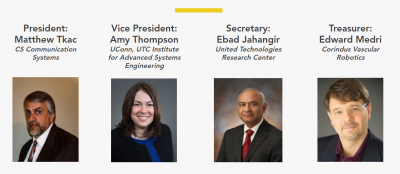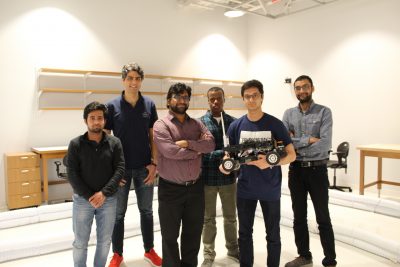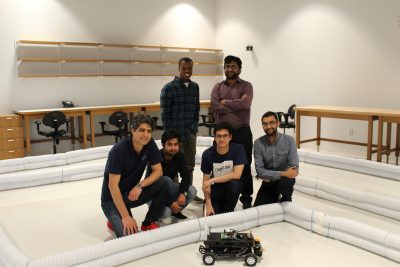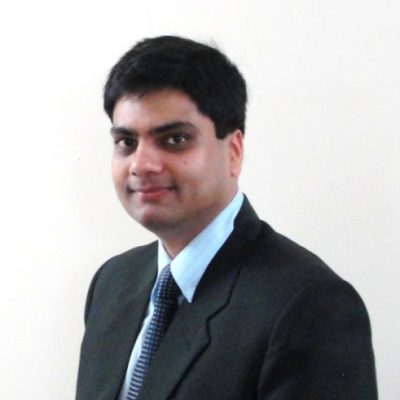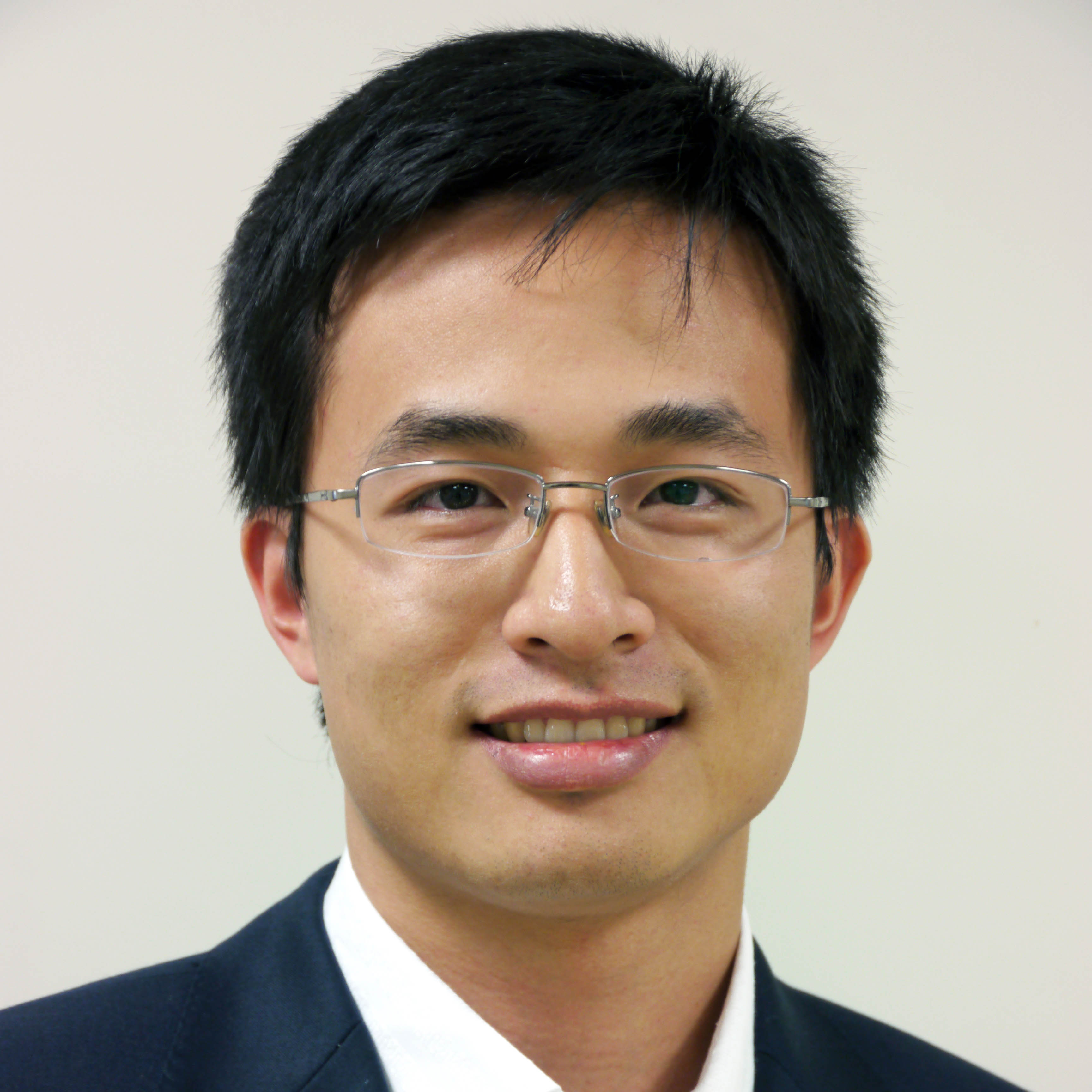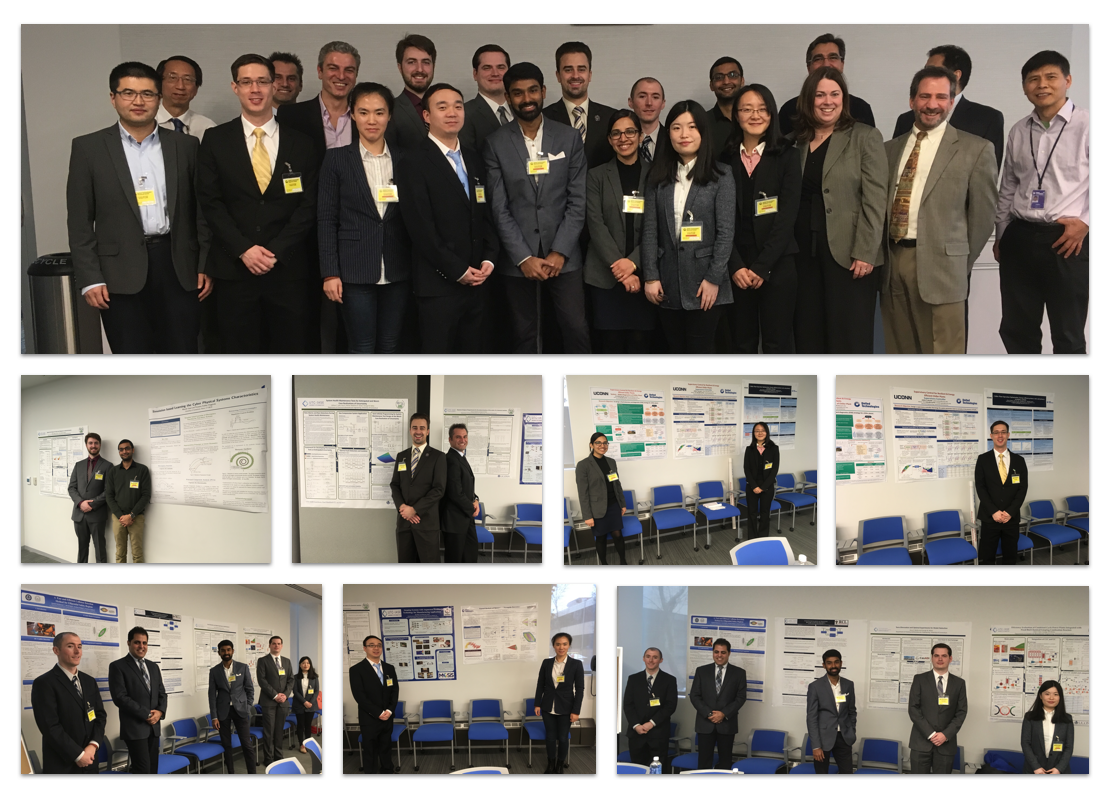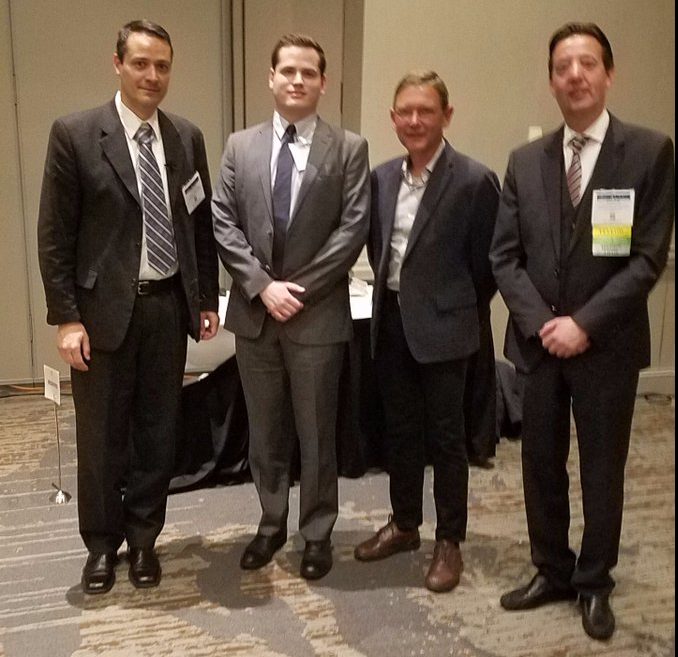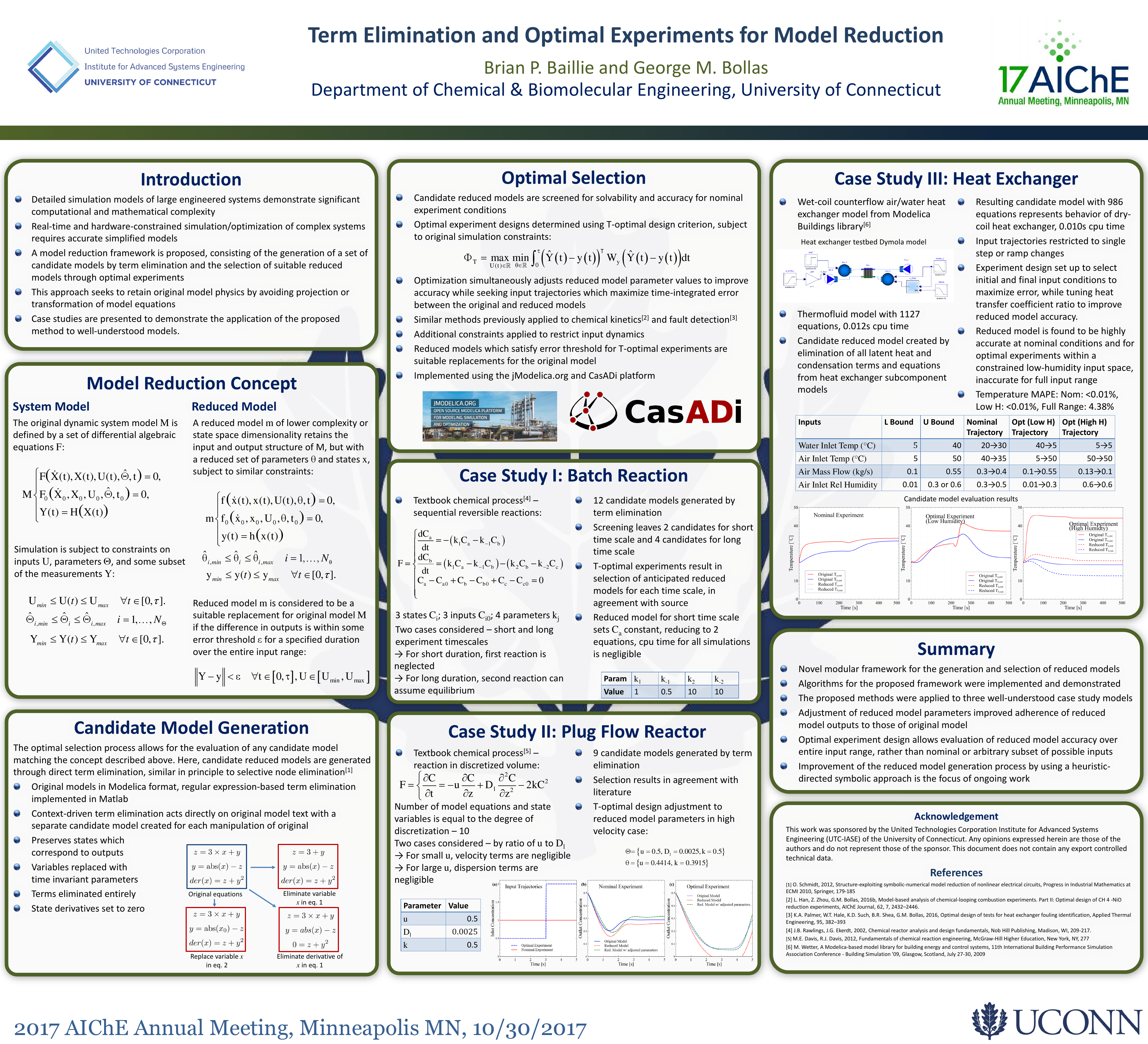This week’s spotlight is on Dr. Abhishek Dutta, who is an assistant professor of Electrical and Computer Engineering. He is affiliated with the UTC Institute for Advanced Systems Engineering and the Connecticut Institute for the Brain and Cognitive Sciences, here at the University of Connecticut. He conducted his postdoctoral research in aerospace engineering in the Coordinated Science Lab at the University of Illinois at Urbana-Champaign, with Cedric Langbort. He received a PhD in Electromechanical Engineering from Ghent University under the supervision of Robin De Keyser and the advice of Jan Maciejowski, as a junior member of Wolfson College Cambridge. He also received an MSc with distinction from the University of Edinburgh, including an informatics prize for his outstanding thesis.
In the upcoming months, Dr. Dutta will be giving a presentation titled “Microcircuit Design for Real-Time Data Acquisition and Neuromuscular Control of Insect Motion” at the Cognitive Computational Neuroscience Conference in September of 2018, in Philadelphia, Pennsylvania. This presentation discusses a framework for an accessible device that would enable the control of advanced cyborg insects that would overcome current technological limitations that plague today’s micro-robots. This work has received attention from Governor Malloy and President Herbst.
Dr. Dutta has also recently submitted a paper titled “Robust Design of a Multirotor Aerial Vehicle” to the journal IEEE Transactions on Cybernetics. This paper introduces the methodology of systematic robust design of multi-rotor vehicles. Robustness in aerial vehicles is highly desirable as it guarantees a desired level of performance, even when there are environmental uncertainties present. Thus far, robustness has been considered in terms of active control in the space of multi-rotor vehicles, without exploring the design space itself. In this work, a conceptual design followed by a robust design is performed to come up with the specifications that lead to least uncertain performance of the multi-rotor vehicle, with respect to stochastic wind disturbances.
Evan Faulkner, a Junior undergraduate student majoring in Electrical Engineering is working on a project titled “Micro-circuit design for modeling and control of insects” under Dr. Dutta. He will also advise two other students working on projects this summer: Nicholas Gorbenko, a Senior undergraduate student majoring in Electrical Engineering, who is working on a project titled “Cultured Neural Networks for Robot Control”, and Hossein Hamidi, a PhD student in Electrical Engineering, who is working on “Modeling and control of neuromuscular dynamics”.
This summer, Dr. Dutta plans to work on two individual research projects. The first is titled “Design and Control of Cyborgs and Neural Cultures”. A state of the art lab has been set up for the design of biological circuits, which will help to enable the modeling and control of insects and also study neuronal cultures. This knowledge will then be leveraged to treat neurological disorders. The second project is titled “Design and Control for Biomedical Applications”. This project is a collaboration with the University of Cambridge and Ghent University amongst other European partners. Dr. Dutta also expects to receive a $225K grant from the Defense Advanced Research Projects Agency (DARPA), Strategic Technology Office (STO). The grant is titled “Collection and Monitoring via Planning for Active Situation Scenarios (COMPASS)”. Partnering with UTRC and SRI, the COMPASS team will work towards enhancing gray zone operation by helping Joint Task Force Commanders understand the intent and tactics of adversaries as they engage in deceptive covert gray zone activities. Instead of relying on passive collection of sensory data, COMPASS will employ probing strategies that stimulate the environment with controlled actions to generate desirable intelligence.
